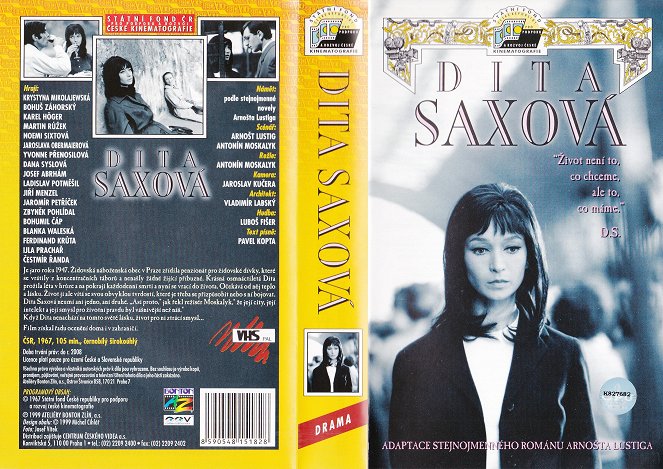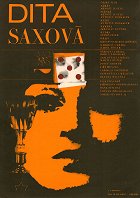Rendező:
Antonín MoskalykForgatókönyvíró:
Arnošt LustigOperatőr:
Jaroslav KučeraZeneszerző:
Luboš FišerSzereplők:
Krystyna Mikołajewska, Bohuš Záhorský, Karel Höger, Martin Růžek, Noemi Sixtová, Jaroslava Obermaierová, Yvonne Přenosilová, Dana Syslová (több)Tartalmak(1)
Dita Saxová is the only one in her family to have survived the concentration camp. Two years have passed since the War and she now lives, together with young women in similar circumstances, at the Young Women's Home organized by the Jewish religious community in Prague. Lawyer comes to see Dita, at whom her uncle, a dental technician, hid his gold foils before the War. He hands over only half of them, and keeps the rest as the payment for the "dangers" he had endured. Dita spends a small fortune on a precious bracelet she buys for herself, and, at her eighteenth birthday party, presents her friends Líza, Britta and Tonička with the remaining gold foils. Beautiful Dita has three suitors. She gives no hope to the madly enamoured Fici and refuses to go to San Salvador with the rich Herbert. She thinks that she has found true love in David Egon and loses her virginity with him at a pension outside Prague. However, the youth is merely a superficial fop and the sensitive girl is deeply hurt to find that he boasts about his success as if she were prey. Dita is deserted by her friends. Líza enters into a loveless marriage with a rich lawyer, Britta goes to England and the fragile, dainty and illness-prone Tonička dies. Dita manages to go to Switzerland. She celebrates her nineteenth birthday at an émigré party organized by the affluent Werli family. The two sons of the hosts court her. Emotionally deprived, Dita feels herself to be nothing but a beautiful object. Next morning she goes in the icily cold mountains, to look for her death. (forgalmazó hivatalos szövege)
(több)Recenziók (3)
"Life is not what we want, but what we have." Lavish in content, yet totally unacceptable in form. It is impossible to detach oneself from such concrete experiences, anchored in time and space, and speak only about feelings. A poorly grasped concept, yet worthy of internal analysis. Had there been fewer partial failures referring to the reality of 1967 and fashion fads, it could have been great.
()
Not even the power of the subject matter compels me to give the film 3 stars. First of all, the casting failed because Krystyna Mikolajewska acts like a scared fish or rather like a puppet most of the time. Perhaps it was intentional, but it did not work for me. The film thus (but not only because of her) feels cold and distant. Antonín Moskalyk's direction seems weak to me and even Arnošt Lustig did not have his best day. A few supporting characters backed by the proven acting abilities of Růžek, Höger, and others can't save it. The film felt somewhat artificial to me, and there are certainly many films that represent the cinema of the 60s much better in the Czech Republic. A certain added value of this film is seeing the leading actors in their youth. Overall impression: 40%.
()
This is another pretty good example of the kind of films that were made in the 1960s and that were really worth it. This is a psychological film focusing on the protagonist, who is brilliantly portrayed by Krystyna Mikołajewska. Actually, this is a coming-of-age film shot with a slightly different perspective and beautiful black-and-white cinematography.
()
Galéria (30)
Photo © Centrum českého videa / Ateliéry Bonton Zlín a.s.


Hirdetés